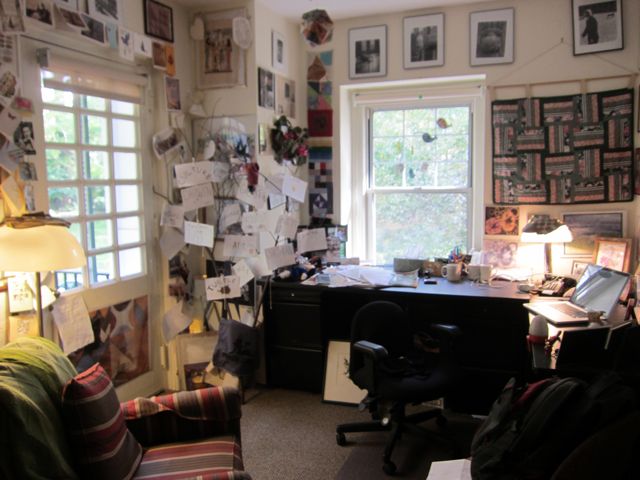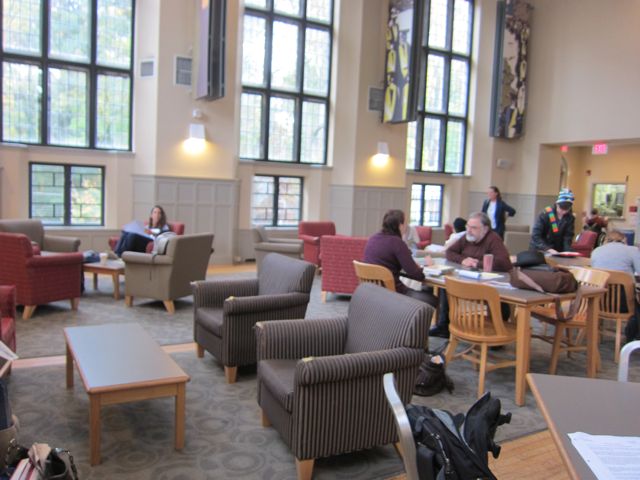Serendip is an independent site partnering with faculty at multiple colleges and universities around the world. Happy exploring!

Boundary Issues?
Given the conversations we had this week (and the papers you are now busily writing!) about "domestic" and "intellectual" spaces @ Bryn Mawr (how separate are they, and should they be?) I was interested in this article, in today's Chronicle of Higher Education, about how students push their facebook use further into course work.
What is Posse?
Hi everyone,
I feel like Posse has been brought up a few times and maybe not fully explained. Here is a blog Jomaira wrote about Posse, but if you have any questions, please feel free to ask Jomaira or me!

Comparing Offices
As inspiration for your postings, this weekend, about space on campus, I thought you might enjoy
(I might invite here) a comparative analysis of my office and Jody's, thinking about....
size
location (in the center of campus? peripheral?)
public or private (how open? how closed?)
what else???



A Call For More A More International Perspective On Sex And Gender
Yes, I do realize that Kaye had mentioned in class that we were going to look at sex and gender in different regions but as I read this column (published in The Standard Hong Kong), I realized just how important it is for us, as students of gender and sexuality studies, to really look further into the intersections between race and gender.
http://www.thestandard.com.hk/news_detail.asp?we_cat=5&art_id=115956&sid=33969693&con_type=1&d_str=20111012&fc=1
When we make assumptions about genders in general, we tend to forget that not all societies comply with what our notions of what 'feminine' or 'masculine' are. In this article, Nury Vittachi, attempts to create a more complex way of classifying men. While I don't really agree with some of the things that he is saying (the column is supposed to be tongue in cheek afterall), I sort of see the point about the limitations of western concepts of masculinity and femininity. Thus, I think it is important to look more at gender constructs in different societies rather than to apply our "own" (or the American points of reference) to other societies.

Rather Dead than Coed
Hey guys!
I'm assuming (possibly incorrectly) that many of you have seen the recent article written by an ex-BMC student now attending Wesleyan about why she found Bryn Mawr to be a negative experience. She then goes on to extend her view to women's colleges in general. What was most interesting to me about the article, though, were the comments. Many Seven Sister students were immediately up in arms againt what Ms. Chu states in the article. If you had a chance to look at them, what do you think these comments say about the "class" of Bryn Mawr. Do you think this is something that has experienced a shift since BMC's beginnings?
Also, to play devil's advocate: How does the bashing of Ms. Chu's opinions relate to what we discussed in terms of censoring and holding back opinions in fear of offending someone? Obviously the commenters did not, but is that what they expected from the author? After all, the purpose of an Opinion piece is to express the opinion of the author. What do you think about the fact that the piece is not longer available online? (Or else I would have posted it here..)
Looking forward to hearing what you guys think!



